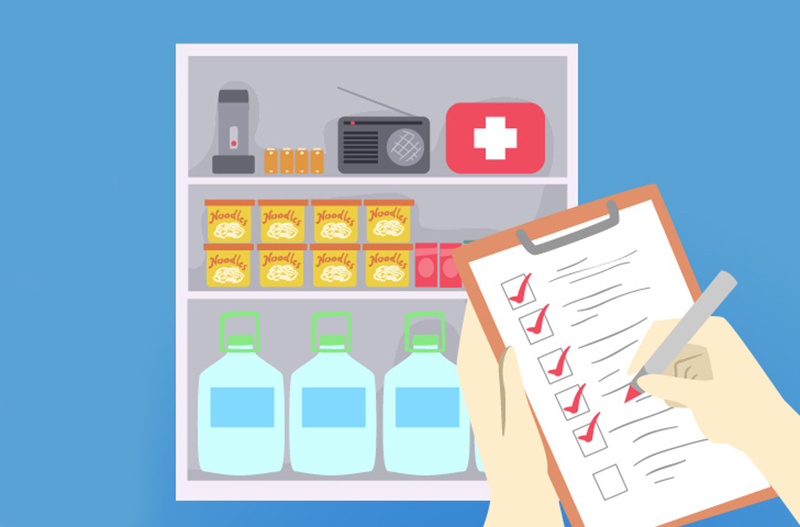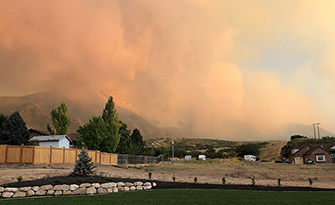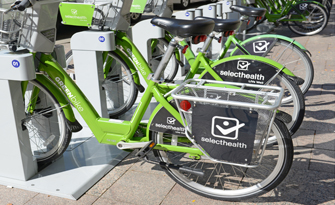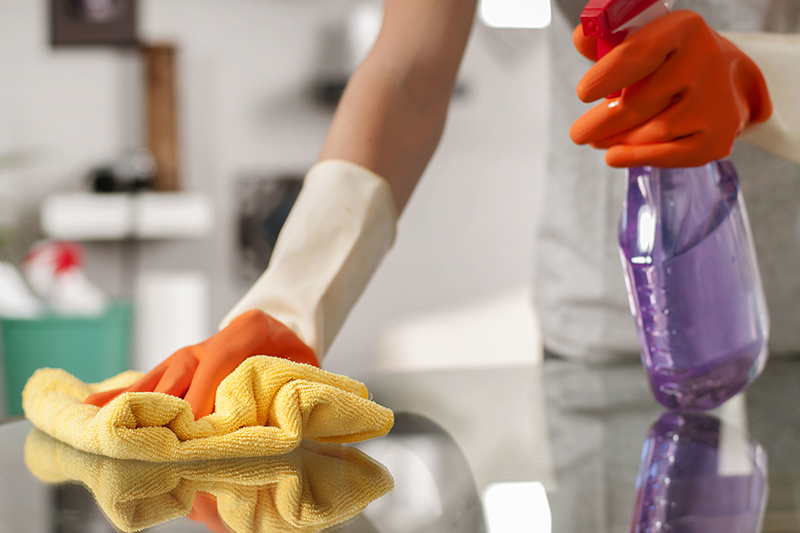How to Be Prepared for a Natural Disaster
Would you be prepared if a natural disaster occurred near you? Here's a list of basic things to keep in case of an emergency.

Do your neighbors have a basement full of food storage and you’ve got just a few bottles of water underneath the stairs somewhere? Don’t fret; building a food supply and preparing for an emergency doesn’t have to be daunting. You can start with getting a few basic items so that you and your loved ones are ready if disaster hits.
What do I need?
Start with a goal to have enough food and supplies to get by for three days. The recommended items to have in a basic supply kit include:
- Water (one gallon per person per day to be used for drinking and sanitation)
- Food (three-day supply that requires no cooking)
- Flashlight and batteries
- First aid kit
- Whistle to signal for help
- Moist towelettes, garbage bags, and plastic ties for personal sanitation
- Wrench or pliers to turn off utilities
Once you get the items for a basic kit, consider other items that you may need in a crisis: copies of important documents, a battery-powered radio, cell phone with charger, cash, sleeping bags, medications, and supplies for your pets. To assemble a kit, print a detailed checklist of recommended supplies by visiting fema.gov, ready.gov, or americanredcross.org.
It’s also important to talk to your family about your emergency plan. Discuss disasters that could occur in your area, identify responsibilities of each family member, and choose a place to meet, if separation occurs.
Taking small steps now in case of a disaster close to home will help you be a little more prepared when the time comes.
Related: Keeping Your Family Safe While Traveling
How can I help those who are in need?
You may be wondering how to help those who are in need. The Red Cross has a donation page in which you can choose to donate money to help with local and national disasters, humanitarian efforts, families who have experienced a house fire, or a general disaster relief fund.
Other nonprofits contributing to disaster relief include Americares (medication and medical supplies) and Convoy of Hope (feeding those affected by disaster and poverty). You may also choose to help through a local charity or ecclesiastical organization.
You may not think that you have much to give, but small gestures can add up to big results. And there may come a time when you need the same type of help from kind strangers, near and far.
While you're here, check out our other articles on healthy living. For information on our medial and dental plans, visit selecthealth.org/plans.
Select Health may link to other websites for your convenience. Select Health does not expressly or implicitly recommend or endorse the views, opinions, specific services, or products referenced at other websites linked to the Select Health site, unless explicitly stated.
The content presented here is for your information only. It is not a substitute for professional medical advice, and it should not be used to diagnose or treat a health problem or disease. Please consult your healthcare provider if you have any questions or concerns.




